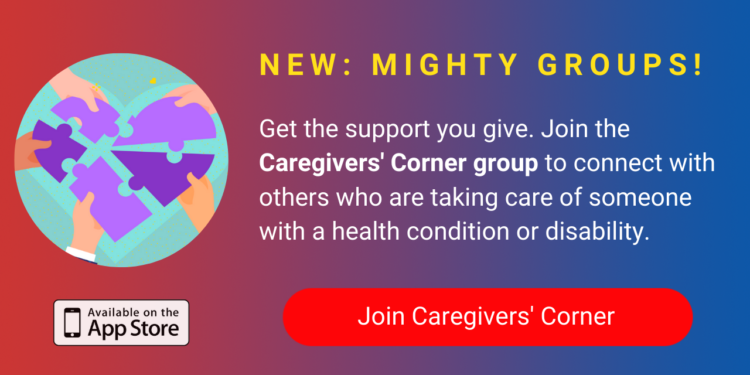How to Keep Your Roller Coaster Going Up While Parenting a Chronically Ill Child
When you become a parent, you become very connected to your child, they can even feel like an extension of your being. Often, we have to remind ourselves not to hold on too tight and that this is their life to live.
However, as a parent of a chronically ill child, you feel even more connected at a whole new deep and profound level. After all, you accompany them and wait with them at doctor’s appointments, lab appointments and the vast array of testing procedures. You are there to hear the good news and the bad, and all of the potential outcomes. You hold their hand and provide support, watching their reactions closely to make sure they are OK. You listen to their words of fear and concern, along with hope and excitement that something might just make them feel better. You coach them and guide them through all of these events, all while trying to keep your own emotions in check. Without even trying or even noticing, you begin to ride along with them on a virtual roller coaster of emotions.
When my chronically ill child has a good day and his body is cooperating, I can’t stop smiling and feeling good and walking around with a bounce in my step. I feel the sun is shining down on me no matter what the weather outside has planned. I want to call friends and share my enthusiasm for life. On those good days, I feel like my child can accomplish anything he puts his mind to; the world has opened up just for him and the possibilities seem endless. I allow myself to take a deep breath, relax and let my body melt into it because I feel that everything will turn out OK … on those days, the roller coaster’s … going UP.
However, when my child has a bad day and his body feels off, I feel kicked in the stomach, kicked to the curb and soo deflated. Often, I feel disappointed, sad, aggravated and even alone. Those bad days make me feel that time is wasting away for my son. He is missing out on life and not moving forward in the natural progression of things for his age. On those days, nothing seems OK …. the roller coaster’s … going DOWN.
Intellectually, I know I’m not supposed to go on a roller coaster of emotions based on how well my child is doing each day or how he is doing throughout the day, but I just can’t seem to stop myself. The roller coaster easily moves from a high point to a low point in the flash of a second.
In order to keep my roller coaster going up more often, I realized that I had no choice but to redefine some important concepts in my life. A wonderful therapist once challenged me with this personal exercise. Although doing this was not easy, I found it extremely necessary and beneficial for my own well-being as a parent.
Here is what I did:
I literally went to my internal dictionary and redefined two different terms. After all, the life we live is ours and we get to set our own definitions and expectations.
First, I …
redefined my definition of “normal” for my family.
As I went through the earlier days of living with a chronically ill child, I kept wondering why my family did not lead a normal life. That thought process was exhausting, feeling like your family was different than everyone else. I kept wishing that my son had a more normal life and that our entire family did as well.
When I began adjusting my definition of normal and the resulting expectations, I found an inner peace and looked at daily life differently.
So what does “normal” mean to me now? It means that no matter how hard we’ve planned or how excited my son is about an upcoming activity, his body often doesn’t cooperate and can’t be relied on. So, if we must miss an activity, that’s OK.
Here are some examples:
- Family dinner is not always possible. My son may not join us for meals because he is nauseous … and that’s OK.
- Family activities can’t be in the morning because getting up for my son is slow and difficult … and that’s OK.
- Eating out at restaurants is often too difficult because my son is on a highly specialized GI diet … and that’s OK.
- My son tires quickly. We recognize that and plan around it … and that’s OK.
All of this is normal for us. My son having good and bad days or even days where he flip flops between good and bad is “his normal day” and our “family’s normal day.”
Secondly, I …
redefined my definition of a “successful day” for my child.
For a while, I somehow correlated “bad day = wasted day” in my head, feeling often that my son’s life was going nowhere. On his bad days, I felt defeated for him with little hope for the future. Then I asked myself, “Why can’t a bad day still have something successful about it?”
It was totally up to me how I defined it and no one else.
I decided that if my son can do one purposeful activity, the day moves from being defined as “wasted” instead to “successful.”
Here are some purposeful ideas I’ve defined for my son:
- Take a car ride and pay attention (blanket and pillow are allowed).
- Go outside or look through a window and identify cloud formations.
- Sit outside and play bird calls on your phone. The particular bird may just fly up.
- Have a discussion where your child chooses the topic.
- Start a puzzle — pieces or crossword.
- Research a new topic.
- Sit in your car at the park.
- Stretch together on the floor.
- Visit the drive-thru and get coffee or something to eat (my favorite).
- Study for 30 minutes.
- Make it to school, even if only for a partial day.
It’s a time where you help your child to find some positive and purposeful energy in the day. Remember, any time you bring that into the day, it’s a success.
Redefining “normal” and “successful day” is not giving up. It is just one way of maintaining a positive outlook on your life and, therefore, maintaining your well being as the parent of a chronically ill child. Modifying my internal dictionary was great advice I received from years back, and has definitely been an integral part in keeping my roller coaster going … UP.
A version of this story originally appeared on brewingmorehope.com.
Photo credit: FrenchToast/Getty Images


